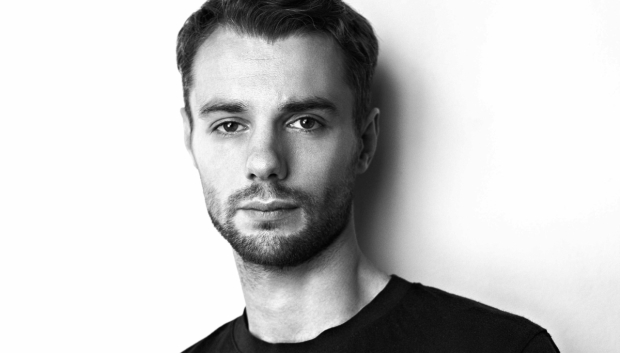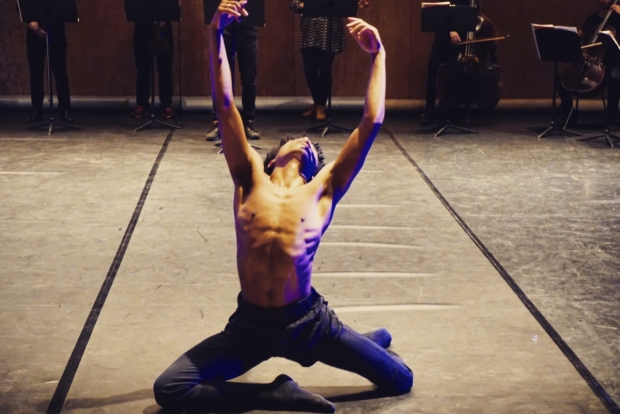Alexander Whitley: 'It's a difficult time for aspiring choreographers'
The dancer and choreographer on his new work, how he transitioned from dancer to choreographer and his piece being shown as part of Rambert Dance Company’s River Stage weekend

© Daniel Jaems
Alexander Whitley has been a dancer for companies such as Birmingham Royal Ballet, Rambert Dance Company, Michael Clark Company and Wayne McGregor Random Dance. He set up his own company in 2014 and Alexander Whitley Dance Company has since had work on at the Royal Opera House and Sadler's Wells.
The dancer and choreographer opened his first full-length piece for Sadler’s Wells to rapturous reviews last month. Here he explains how he began making his own work and the piece Rambert is performing on the River Stage this weekend.
Your show 8 Minutes went down very well, how are you feeling?
I’m really thrilled with the response to it and we’re touring it in October and November. I’ve been working towards it for a couple of years, it’s the culmination of a lot of work.
I read a review that said you had been an emerging choreographer for ages, does this now mean you have officially ‘emerged’?
I have had work on the main stage at Sadler’s Wells with my company and other companies, but it’s always been in mixed programmes. I guess in terms of being 'fully emerged', the first full evening’s work on the Sadler’s Wells main stage, is probably the hallmark. But people still do refer to me as emerging.
8 Minutes refers to the length of time it takes light from the sun to reach the earth, how did you come to focus on science for the piece?
It was through the Rutherford Appleton Laboratory in Oxford, who have been involved in space missions. They set up an artist in residence programme as a way of improving their public engagement. I jumped at the chance to work with them. Dr Hugh Mortimer the lead scientist managed to explain very complex aspects of solar physics in ways that we could grasp. I gain a lot from feeling as though I’m delving into something new. For our video artist Tal Rosner it was also a really rich resource.

© Alex Whitley
Do all your pieces come from an idea or theory like this?
They’ve all been inspired by a range of things. Traditionally, inspiration might be a piece of music, and I do take a lot from music – perhaps partly because I have a background in ballet. But I get a lot of pleasure in exploring social and political themes too. There’s something very systematic about science. It’s often concerned with looking at core concepts and principals of the world. I find that stimulating.
You’ve worked as a dancer all over. Where did you start making work?
It was when I was at Birmingham Royal Ballet. Most rep companies offer the opportunity for dancers to make work and when I did I really enjoyed it. I got a good response and some good feedback. That prompted my move to Rambert. I realised a lot of the work I was interested in was contemporary dance. Rambert seemed like an ideal place to make that transition from ballet to contemporary dance. I really benefited from regular opportunities there to make work. It was a really rich environment.
A piece of yours is being performed on the River Stage at the National Theatre this weekend, what can people expect?
I made a piece for the 12 Ensemble, to a piece of music in their repertoire called "Ulysses Awakes". It’s by John Woolrich and it was written as a response to Monteverdi’s opera and has quite a strong narrative to it. It’s a solo piece and the choreography isn't very literal but you do get a sense of a man’s journey. And it’s a really beautiful piece of music. The libretto is about the point that Ulysses wakes up on the shore after having been shipwrecked. It’s performed by a dancer called Luke Crook. In some ways the choreography is always a response to the dancer I work with. This will only be the piece’s second outing.
Dancers are a little like footballers, in that their physical abilities can be a barrier to continual work. Do you think there’s enough support for dancers as they progress through their career?
There are good things in place for dancers – the Dancers' Career Development Fund is really great. I did a degree in Politics, Philosophy and Economics while I was at Rambert, which has made a big difference to how I think and the skillset I have. There’s things like the Elixir Festival at Sadler’s Wells which offers dancers later in their careers opportunities to be onstage. Mature dancers can bring an amazing presence to the stage. I’m working with New Movement Collective at the moment too and we are constantly negotiating how we can still create work without relying on technical skills.
So there are lots of opportunities?
I don’t think it’s the best time for the arts in general, because of the declining funding. There are definitely fewer freelance opportunities and it’s harder for people coming out of school now especially if you're an aspiring choreographer. But there are encouraging things: Studio Wayne McGregor has built a great studio space dancers can use in return for working with the community. Sadler’s Wells are building a new theatre in Stratford too. So there’s exciting things happening in slightly challenging times.
This weekend Rambert Dance Company is taking over the River Stage on the South Bank from Friday to Sunday. Ulysses Awakes will take place at 9.30pm on Saturday.













